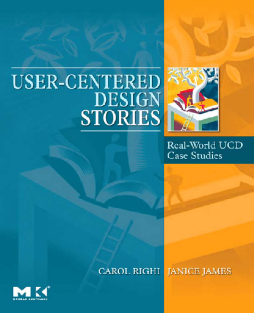
Additional Information
Book Details
Abstract
User-Centered Design Stories is the first user-centered design casebook with cases covering the key tasks and issues facing UCD practitioners today. Intended for both students and practitioners, this book follows the Harvard Case study method, where the reader is placed in the role of the decision-maker in a real-life professional situation.
In this book, the reader is asked to analyze dozens of UCD work situations and propose solutions for the problem set. The problems posed in the cases cover a wide variety of key tasks and issues faced by practitioners, including those related to organizational/managerial topics, UCD methods and processes, and technical/ project issues.
The benefit of the casebook and its organization is that it offers new practitioners (as well as experienced practitioners working in new settings) valuable practice in decision-making that cannot be obtained by simply reading a book or attending a seminar.
- The first User-Centered Design Casebook, with cases covering the key tasks and issues facing UCD practitioners today.
- Each chapter based on real world cases with complex problems, giving readers as close to a real-world experience as possible.
- Offers "the things you don't learn in school," such as innovative and hybrid solutions that were actually used on the problems discussed.
As interaction design practitioners at all levels change jobs and get promoted, there are many new situtations to face--many of which even a seasoned professional may not have encountered. Because with UCD there is often no one correct answer, there is a complexity with tradeoffs and solutions that require critical thinking and the application of the existing knowledge base. This book addresses this need by its method of eliciting the kind of critical thinking required, and will give readers the kind of experience they can only otherwise get with lots of time on the job.
